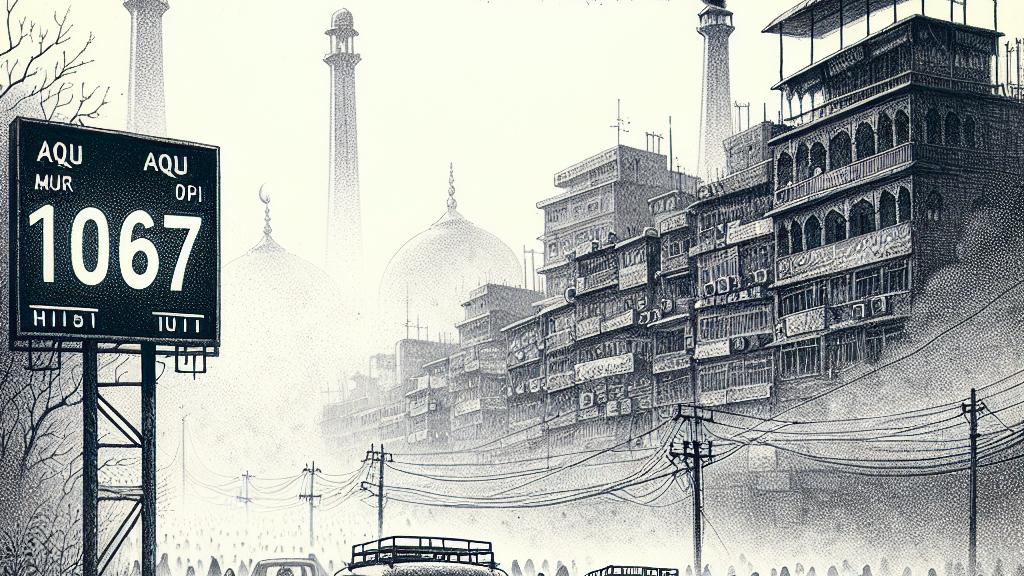Severe Air Pollution Crisis in Lahore Exceeds WHO Limits
Overview
- Lahore, Pakistan, is grappling with an unprecedented air pollution crisis, with levels soaring beyond WHO limits by a staggering 40 times.
- Recent measurements reveal PM2.5 pollutants reaching a dangerous peak of 610 micrograms per cubic meter, raising serious health alarms.
- In a bid to combat this daunting challenge, the government has imposed strict regulations aimed at protecting public health.

Lahore's Alarming Air Quality Crisis
On November 2, 2024, Lahore, Pakistan, found itself at the heart of an alarming environmental disaster as air pollution levels surged to over 40 times what the World Health Organisation (WHO) considers safe. This distressing turn of events has resulted in a thick, oppressive smog hanging over the city, a toxic mix primarily caused by diesel exhaust, the smoke of agricultural burning, and the chilling winter atmosphere that traps these pollutants near the ground. Incredibly, the air quality index (AQI) soared to an unprecedented 1,067. Residents, forced to navigate through this hazardous fog, face the grim reality of compromised health at every breath, truly experiencing the pressing need for immediate action.
Government Response: Swift and Decisive Actions
As the pollution levels reached a critical point, the Pakistani government responded with urgency and resolve. Among the newly implemented measures is a ban on polluting tuk-tuks that contribute significantly to the city's toxic air; these vehicles are now banned from key hotspots. Additionally, restaurants that utilize open flames without effective filtration systems have been ordered to halt operations, emphasizing the government's aim to reduce emissions from all fronts. On top of that, starting November 4, a partial work-from-home policy has been enforced for half of the workforce in government and private sectors, reflecting a serious attempt to protect public health. Amidst all these changes, local residents like Lilly Mirza express their anxiety and concern—concerned about the well-being of their families, especially the young children navigating through the smog.
Health Risks: A Dire Situation for Residents
The health repercussions of Lahore's toxic air are truly alarming and cannot be overstated. Prolonged exposure to high levels of fine particulate matter, or PM2.5, is linked to serious health concerns, including strokes, heart attacks, and a range of respiratory diseases. Studies have revealed that the most vulnerable populations, especially children, are at risk of severe health complications due to this toxic environment. The WHO emphasizes that even short periods of exposure can lead to immediate effects that compromise health. As residents don masks and limit outdoor activities, their everyday lives are significantly altered. The urgency for comprehensive and long-lasting pollution control measures has never been more critical; it is not merely a plea for cleaner air but a fundamental fight for health, safety, and a better quality of life amidst a worsening environmental crisis.

Loading...